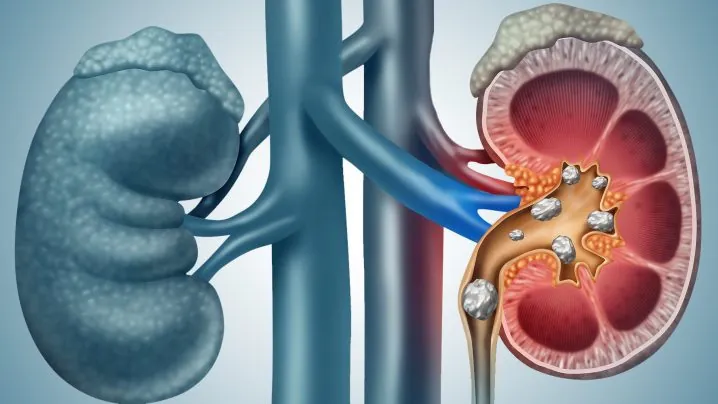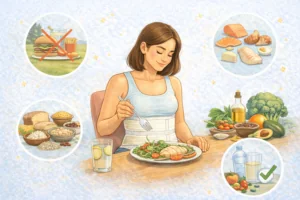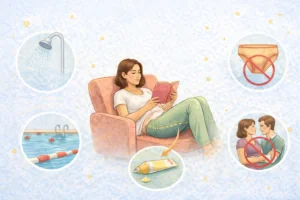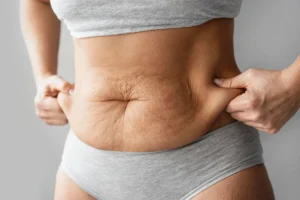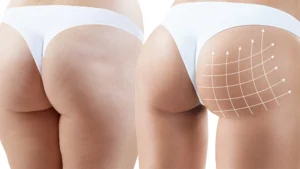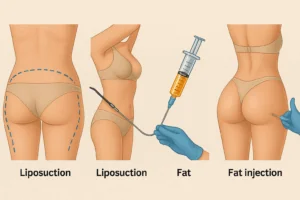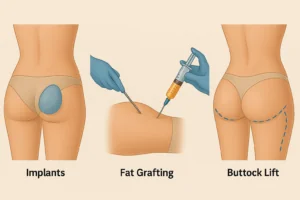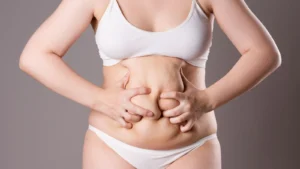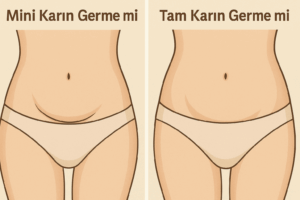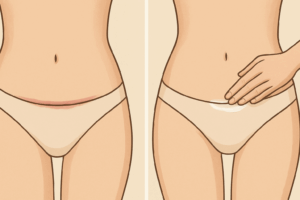Introduction to Kidney Stones
Kidney stones are a common health problem faced by many people. These stones form when mineral and salt deposits harden in the kidneys. In some cases, kidney stones can be painful and lead to serious health problems.
Understanding Kidney Stones
The formation of kidney stones depends on several factors. Usually, an excess of dissolved minerals and salts in your urine causes stones to form. These components crystallize in the kidneys to form stones. Kidney stones can be of various sizes and while some are naturally eliminated from the body through urine, others may require medical intervention.
Importance of Kidney Health
The kidneys are vital organs that filter waste from our body and regulate blood pressure. Healthy kidneys play an important role in maintaining the balance necessary for the body. Kidney stones can disrupt this balance and negatively affect kidney function.
Definition of Kidney Stones
Kidney stones are usually caused by an excessive concentration of minerals in the urine. This causes the urine to become saturated and the minerals crystallize and form stones.
Types of Kidney Stones
Kidney stones
There are several types, each consisting of different components. The most common types are:
- Calcium Stones: Usually contain calcium oxalate or calcium phosphate and are the most common type of kidney stone.
- Uric Acid Stones: Can be caused by high protein diets and some genetic factors.
- Struvite Stones: Usually formed as a result of urinary tract infections and can grow rapidly.
- Cystine Stones: It is a rare type and is caused by cystinuria, a genetic condition.
Symptoms of Kidney Stones
While kidney stones sometimes cause no symptoms, the following symptoms may occur when the stone blocks the urinary tract:
- Sharp, severe back or side pain
- Pain during urination
- Cloudy, pink or red urine
- Frequent need to urinate
- Nausea and vomiting
Causes of Kidney Stones
Factors that contribute to the formation of kidney stones include insufficient water consumption, certain dietary habits, overweight, certain medications and certain medical conditions.
Diagnosis and Treatment of Kidney Stones
Kidney stones are usually diagnosed with imaging tests such as ultrasound, CT scan or X-ray. Treatment methods vary depending on the size and type of stone and the symptoms it causes.
Treatment Methods for Kidney Stones
- Treatment for Small Stones: Most small stones can be removed from the body naturally by drinking plenty of water and taking painkillers.
- Treatment for Large Stones: For large stones, lithotripsy (stone crushing), endoscopic surgery or open surgery methods can be used.
Prevention Methods
Here is what can be done to prevent kidney stones:
- Drink plenty of water
- Following a low-salt and low-oxalate diet
- Maintain a healthy weight
- Regular exercise
Kidney stone awareness is important to prevent and manage this health problem. A healthy lifestyle and regular medical check-ups can reduce the risk of kidney stones.
Long-term effects of kidney stones
Kidney stones can lead to long-term health problems if left untreated. These effects can include urinary tract infections, kidney damage and even kidney failure.
Risk of Chronic Kidney Disease
Frequent recurrent kidney stones can impair kidney function over time and increase the risk of chronic kidney disease. This leads to the kidneys being unable to filter waste and excess fluids effectively.
Psychological Effects of Kidney Stones
Kidney stone pain can be serious and stressful. This can affect a person's daily activities and quality of life. In addition, people who struggle with recurrent stones may have an increased risk of anxiety and depression.
Kidney Stones and Nutrition
It is important to change your eating habits to prevent the formation of kidney stones. A healthy diet can reduce the risk of kidney stones.
Ideal Eating Habits
- Fluid Consumption: Drinking at least 2-3 liters of water a day reduces the risk of kidney stones.
- Reduce Sodium Intake: Excess salt can trigger stone formation by increasing the passage of calcium into the urine.
- Protein Intake: Excessive consumption of animal protein may increase the risk of uric acid stones.
- Avoid Foods Containing Oxalate: Spinach, chocolate and
Excessive consumption of oxalate-rich foods such as nuts may increase the risk, especially in individuals predisposed to calcium oxalate stones.
Diet Recommendations for Kidney Stones
- Foods Rich in Calcium: Foods rich in calcium, such as dairy products and green leafy vegetables, can reduce the risk of stone formation by reducing the absorption of oxalate in the intestines.
- Balanced Nutrition: A balanced and varied diet can prevent the formation of kidney stones by maintaining mineral balance.
Kidney Stones and Lifestyle Changes
It is important to make lifestyle changes to prevent kidney stones or to prevent their recurrence. These changes can improve your overall health and reduce the risk of kidney stones forming.
Physical Activity
Regular exercise supports kidney health and can reduce the risk of stone formation. Exercise improves fluid and mineral balance in the body and helps with weight control.
Adequate Hydration
Adequate hydration helps to dilute urine and reduces the risk of kidney stones. Water is the best source of hydration.
Reducing Smoking and Alcohol Consumption
Smoking and excessive alcohol consumption can increase the risk of kidney stones. Avoiding these habits can improve your overall kidney health.
Kidney Stones and Alternative Treatment Methods
Some alternative treatments can help manage kidney stones. However, you should always talk to a health professional before trying these methods.
Herbal Treatments
- Lemon juice and olive oil: Some people use a mixture of lemon juice and olive oil to facilitate the passage of small stones. However, the effectiveness of this method has not been scientifically proven.
- Flaxseed and Parsley Juice: These natural diuretics can increase urine flow and facilitate the removal of stones.
- Herbal Teas for Kidney Stones: Herbs such as horsetail can support urinary tract health, but it is important to seek medical advice on their use.
Akupunktur ve Refleksoloji
These alternative treatment methods can help relieve pain from kidney stones. However, they should not replace conventional treatments.
Best Practices and Tips for Kidney Stones
Here are some tips and best practices for combating and preventing kidney stones:
- Regular Medical Check-ups: Regular medical check-ups are important for early detection of kidney stones.
- Control Salt and Sugar Intake: Avoiding foods high in salt and sugar can reduce the risk of stone formation.
- Keeping a Diet Diary: Keeping a diary of the foods you eat and the fluids you drink can help you identify risk factors.
Conclusion
Kidney stones are a serious health problem that needs to be managed. However, with the right information, healthy lifestyle changes and regular medical care, it is possible to overcome this problem. Be proactive to protect your kidney health and prevent kidney stones.


